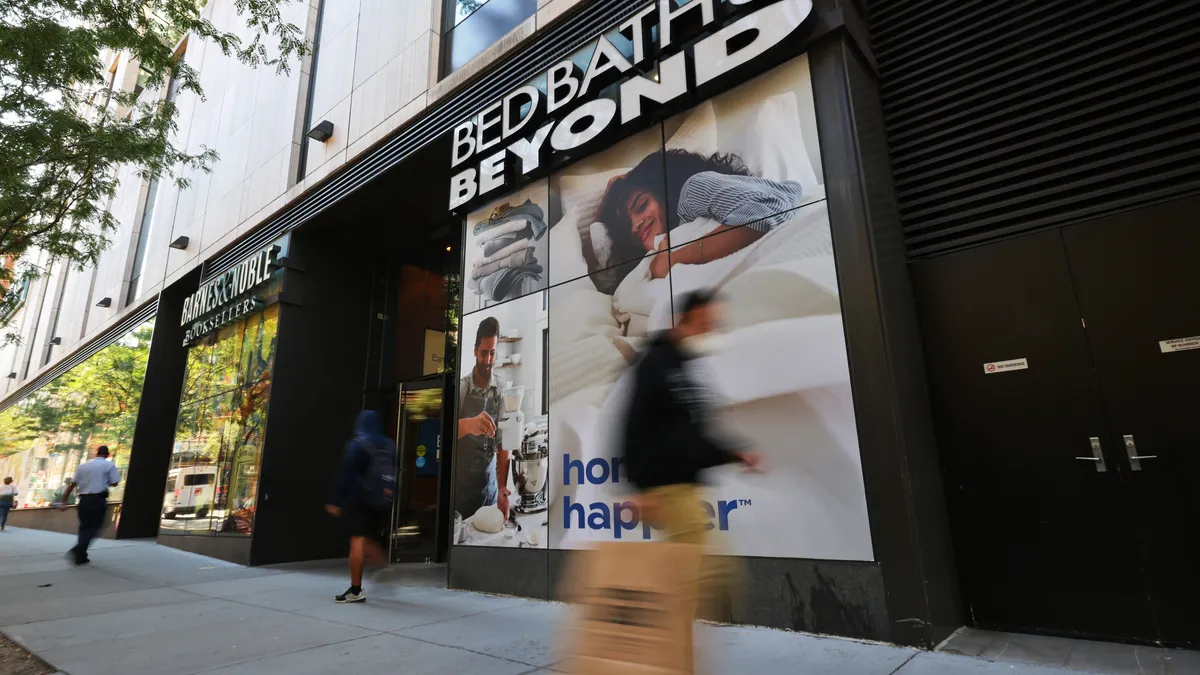UPDATE: August 2, 2018: This week a federal bankruptcy judge approved a settlement between Rockport and Adidas that resolves Adidas' administrative claims against Rockport and its objection over the sale of Rockport in Chapter 11. Under the agreement, Rockport is set to pay Adidas $8 million from the proceeds of its sale to Charlesbank Capital Advisers at the time of closing, according to court documents. The settlement clears the way for the sale of Rockport to proceed.
Dive Brief:
- Rockport has agreed to sell itself in bankruptcy to private equity firm Charlesbank Capital Partners, according to a company press release. Rockport expects the sale, which will require approval by the court overseeing the shoe seller's Chapter 11 case, to close by July 31.
- Charlesbank provided a stalking horse bid in May that set the minimum bidding terms of an auction that Rockport ultimately canceled because no other parties submitted a qualified bid, Rockport said. After talking with four interested buyers, Rockport chose Charlesbank's $150 million cash offer as the stalking horse bid, according to court papers filed previously. When the shoe wholesaler and retailer filed for bankruptcy in May, it had an agreement in hand from Charlesbank to buy its assets.
- Reebok and its parent Adidas — former owners of Rockport that continued an operating relationship with the company after selling it in 2015 — have objected to the sale, saying that it transfers key assets to Charlesbank while failing to account fully for $54 million owed to the shoe brands. "Now, having reaped all the benefits of Adidas's considerable operating expertise in foreign retail markets, the debtors propose to sell the very business that Adidas maintained for them and to leave Adidas and Reebok holding the bag," attorneys for the brands said in court papers filed late June.
Dive Insight:
After changing hands a few times in the years leading up to its bankruptcy, Rockport's ultimate future is still likely not written yet. Reebok bought the company, which was founded in 1971, in the 1980s. Adidas in turn acquired the brand when it bought out Reebok in 2005. Ten years later, Adidas sold Rockport to New Balance and Berkshire Partners, who, last year, sold it again to the company's noteholders. Now it has a deal with a private equity company that, if it follows the investment model of the private equity sector broadly, may well put it up for sale again in a few years.
Adidas and its subsidiary Reebok said in court papers that they held onto some assets of Rockport's in some foreign markets, operating Rockport's business in those areas and charging it fees for doing so until last November, when Rockport took over control.
Adidas and Reebok say Rockport failed to pay $54 million in fees owed from the time they operated those foreign businesses, making them unsecured creditors in Rockport's bankruptcy case. The brands argue that Rockport shouldn't be released from its full liabilities to the shoe giants through a third-party sale.
Rockport's interim chief financial officer Paul Kosturos said in May court papers that unwinding from Adidas' logistics network "proved to be more complex, took meaningfully longer, and was significantly more expensive than planned." That proved among the factors that sent Rockport into bankruptcy, according to Kosturos.
Rockport also experienced supply chain disruptions in 2016 as three foreign factories it relied on closed, and in 2018 a logistics provider served the company with notice of default that "[alleged] that Rockport was in material breach of the expeditor agreement for failure to pay certain charges disputed by Rockport," according to Kosturos. He added that in May Rockport paid the disputed amount "under duress and protest" with provisions for clawback.
The sale to Charlesbank signals that the private equity firm sees value in Rockport. The shoe seller said in a release that the sale would "ensure the continuation of its deep heritage and great brands and enhance its focus on its global wholesale, independent and e-commerce businesses." Rockport also said the sale would remove a significant amount of debt from its books, which in turn would better position the company for the long-term.













